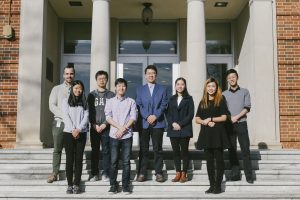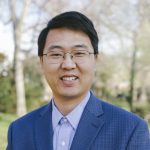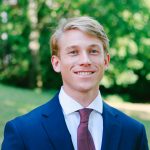Yanguang Cao Lab
Yanguang Cao Lab
Dr. Cao’s reserach is broadly based on pharmacokinetics/pharmacodynamics and systems pharmacology/biology. He combines molecular imaging and computational modeling tools to study cancer, the immune system, and immunotherapy. Specifically, he has designed several molecular imaging techniques to track immunotherapeutic antibodies or effector cells (NK or T) in the living systems to understand their disposition behaviors, interactions with the target cells, and the mechanism of actions and resistance. He uses computational models to deconvolute the multiplex and multilateral interactions among tumor, the immune system, and immunotherapy, disclosing the dynamics and mechanisms of the immune system in response to the constantly evolving tumors.
We are now pursuing the following topics:
- Integrating antibody PK/PD and the host system to optimize antibody-based therapies.
- Developing molecular imaging approaches to trace antibody, the immune system, and tumor cells.
- Tumor resistance and evolutionary theory.
- Exploring spatial/temporal harmonization between immune systems and immunotherapy.
Research in the Cao Lab focuses broadly on antibody- and cellular-based therapy in the treatment of cancers and autoimmune diseases using a variety of techniques from pharmacokinetics/pharmacodynamics, molecular imaging, engineering, and computational modeling.
Our research is at the interface of computational modeling and experimental oncology and immunology. Below are selected examples of ongoing projects in his lab. As a young and rapidly growing group, we are also constantly initiating new projects within this research field.
Antibody spatial distribution and interaction with targets in the living systems.
The efficacy of therapeutic antibodies is essentially driven by their interactions with the target cells, which is shaped by many physical and biological factors. However, it remains a “dark spot” in our knowledge of how antibodies interacting with their target cells in the living systems, which limit our abilities to understand the mechanisms of resistance and design effective antibodies. In this project, we develop a bioluminescence resonance energy transfer (BRET)-based system that leverages the large signal: noise ratio and stringent energy donor-acceptor distance dependency to measure antibody-antigen interactions in a highly selective and temporal fashion. With this technique, we evaluate their interactions in a variety of physiological environments in the living systems.
Interaction between effector cells and pathogens or tumor cells.
Effector cells play an important role in antibody- and cell-based therapies. Unfortunately, the degree and dynamics of the interactions between effector cell and pathogen or tumor cells in the living system have not been well characterized, mostly because an approach for measuring cell-cell interactions directly in vivo is still lacking. In this project, we combine molecular imaging and computational modeling approaches to understand their interactions and the influencing factors, which could potentially help to disclose the mechanisms of resistance to an antibody or cell therapy.
Evolutionary dynamics of pathogens and drug resistance.
Tumor or pathogen resistance to treatment has become one of the major obstacles in effective therapeutics. The promise of antibody therapy has only fulfilled in a small fraction of patients. In this project, we adopt Darwinian’s principles, coupled with computational modeling, to infer the process of resistance. This work is expected to recapitulate the evolutionary dynamics of diseases and improve our current strategies in developing and applying antibody-based therapies.

Tyler Dunlap
| Hua He, M.S. | Postdoctoral Fellow | 2015-17 |
| Emily Mick, Pharm.D. | Postdoctoral Fellow | 2017-18 |
| Brian Maas, Pharm.D. | Postdoctoral Fellow | 2015-16 |
| Xiaobing Li, Ph.D. | Visiting Scholar | 2017-18 |
| Qian Zhao, Ph.D. | Visiting Scholar | 2017-18 |
| Kun Hao, Ph.D. | Visiting Scholar | 2018-19 |
| Dongfen Yuan, Ph.D. | Postdoctoral Fellow | 2017-19 |
| Zoey Tang, Ph.D., M.S. | Graduate Student | 2016-21 |



